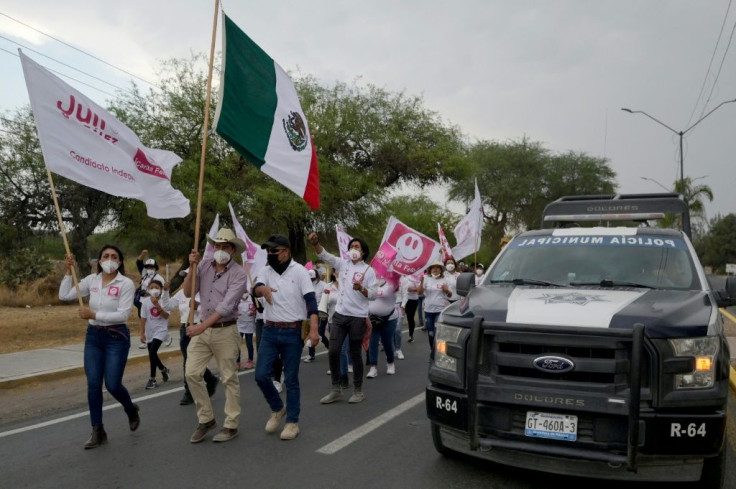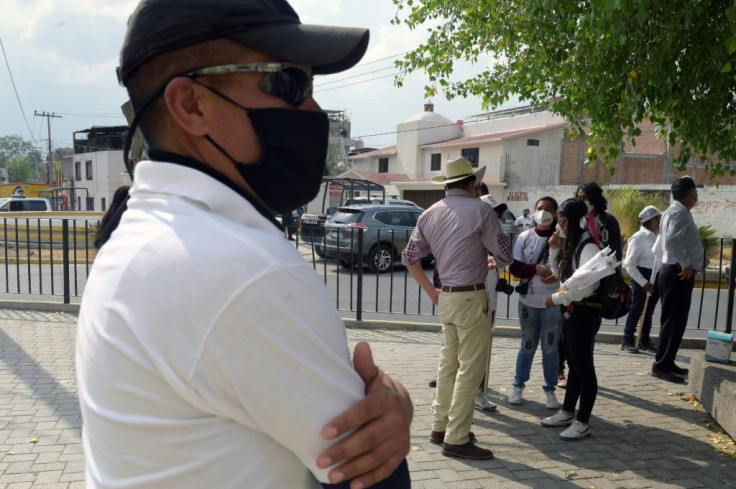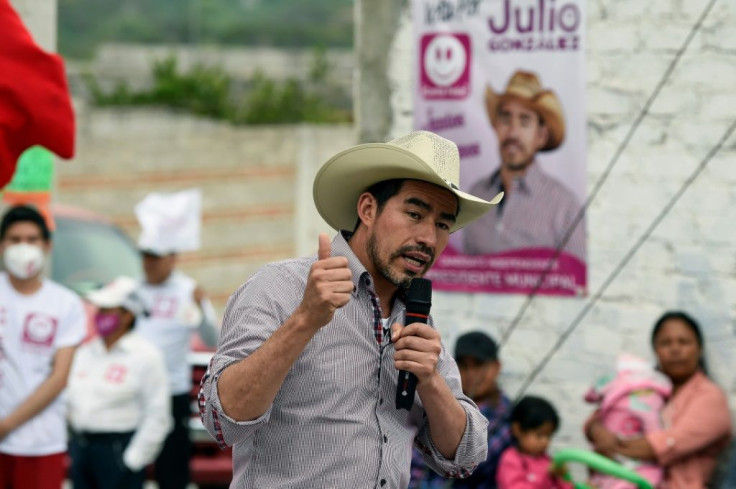Candidates Dice With Death On Mexico Campaign Trail
Every day before hitting the campaign trail, Julio Gonzalez prays he will come home alive and avoid joining the growing number of candidates murdered during another bloody Mexican election battle.
For politicians in the Latin American nation, running for office can be a death sentence due to rampant violence linked to corruption and the multibillion-dollar narcotics trade.
"I leave home to go campaigning and when I get in my car I say 'In the name of God, may everything go well and I return safely,'" Gonzalez told AFP.
The 39-year-old independent candidate is running for mayor of the city of Dolores Hidalgo in the violence-plagued central state of Guanajuato.
Gonzalez said he wants to banish the "rats," referring to allegedly corrupt officials.

It is a high-stakes strategy in a country where at least 14 candidates in the June midterm elections have already been murdered, according to the authorities.
Even worse, including people seeking to be candidates, 34 people have been killed, according to the consulting firm Etellekt.
In total 88 politicians have been murdered since the electoral process began in September, it says.
President Andres Manuel Lopez Obrador's government has blamed the violence on powerful cartels seeking to expand their political influence.

It is Gonzalez's second bid for office, after he finished in second place in the 2018 elections.
Both his campaigns have been marked by threats and attacks.
In March, firebombs were thrown at his house, while he and his team have received repeated threats on social media.
"There are also people with weapons and suspicious vehicles that follow us," said Gonzalez, who has a private bodyguard.
"They want to scare me so that I lose courage, determination or I'm always thinking about who's following me," he added, without pointing the finger at anyone in particular.
But in Guanajuato, violence is more than just a deterrent: on Tuesday gunmen killed another mayoral candidate in the state, 60-year-old Alma Barragan.

Guanajuato is one of the country's most violent regions due to the presence of rival gangs trafficking stolen fuel.
It has registered almost 1,300 murders so far this year, one of the highest tolls in Mexico.
Across the country, around 300,000 people have been killed since the government unleashed the military in the war on drugs in 2006.
"It scares us, but we are going to win," Gonzalez said.
The government has reported 400 attacks on candidates and provides protection to nearly 150 people running for office.
Some of them, such as Erika Cortes, candidate for mayor of Cuichapa in the eastern state of Veracruz, have decided to drop out of the race altogether.
"Unfortunately it's a political tool to use violence with the goal of gaining more power, winning elections, votes, land, clientele, resources," said Romain Le Cour of the consultancy firm Noria Research.
According to Etellekt, more than 150 politicians were killed during a particularly bloody campaign for the 2018 elections that brought Lopez Obrador to power.
The strategy of intimidation is based on impunity, said Etellekt director Ruben Salazar.
There have been arrests in connection with just three of the murders of candidates in this year's elections, he noted.
On June 6, Mexicans will elect 500 members of the lower house of Congress as well as 15 state governors and thousands of local politicians.
A team of monitors from the Organization of American States on Wednesday expressed its "deep concern" about the election-related violence.
"The mission calls on all political sectors to eradicate violent speech and aggressive rhetoric as resources of political competition. Violence has no place in democracy," it said in a statement.
Despite the dangers, Gonzalez's campaign team is upbeat and confident of victory, promising residents improvements in health and safety if he wins.
"When I made the decision to take part, I knew that I was going to expose myself and I'm willing to pay the price I have to pay," he said.
© Copyright AFP {{Year}}. All rights reserved.





















